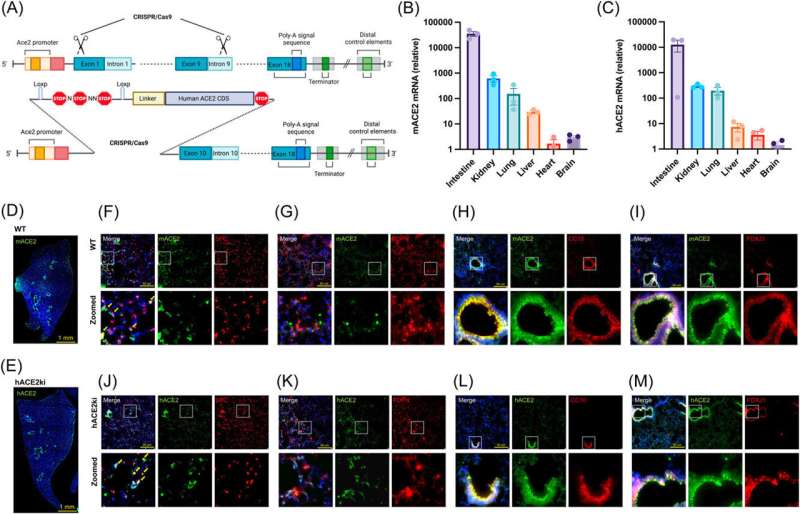This article has been reviewed according to Science X's editorial process and policies. Editors have highlighted the following attributes while ensuring the content's credibility:
fact-checked
trusted source
proofread
Mouse study shows long COVID-19 infection linked with tangled protein that causes Alzheimer's disease

With a newly developed mouse model that more accurately represents human infection with COVID-19, Johns Hopkins scientists say they have found long-term infection with SARS-CoV-2 results in brain deposits of clumped and tangled Tau proteins commonly found in people with Alzheimer's disease.
A report on the study, published Jan. 7 in the Journal of Medical Virology, adds to growing evidence in animal models and human autopsy tissue samples of the potential effects of COVID-19 on neurodegeneration.
For the study, a collaboration among experts in cell engineering, animal model development and immunology, the researchers developed a mouse model genetically engineered to produce human versions of the ACE2 protein on the surface of cells.
The ACE2 protein is considered the key linkage between human cells and the SARS-CoV-2 virus, which causes COVID-19. The model also includes a kind of genetic switch that can flip on or off the production of ACE2 proteins so that researchers can better study the protein's impact at different times and sites in the body.
The scientists, led by Xiaobo Mao, Ph.D., and Hongpeng Jia, M.D., exposed the new mouse model to SARS-CoV-2 and found that, while none of the mice died prematurely, Alzheimer's disease-linked Tau proteins built up in their brains up to 21 days after the infection.
Pathological Tau proteins can spread from cell to cell, driving disease progression, say the researchers. In the new mouse model that was exposed to SARS-CoV-2, the researchers saw propagation of Tau proteins over time after infection.
"Given that Tau pathology is highly associated with cognitive decline, this aspect deserves more attention regarding long-term consequences in the post-COVID-19 period," says Mao.
"Individuals experiencing long-haul COVID are at a higher risk of cognitive impairment and symptoms resembling Alzheimer's disease. This mouse model can serve as a valuable tool for the scientific community to further investigate the neurological outcomes during long COVID," says Kundlik Gadhave, Ph.D., co-first author and postdoctoral fellow at the Johns Hopkins University School of Medicine.
More information: Chang‐Yong Choi et al, Generation and characterization of a humanized ACE2 mouse model to study long‐term impacts of SARS‐CoV‐2 infection, Journal of Medical Virology (2024). DOI: 10.1002/jmv.29349




















